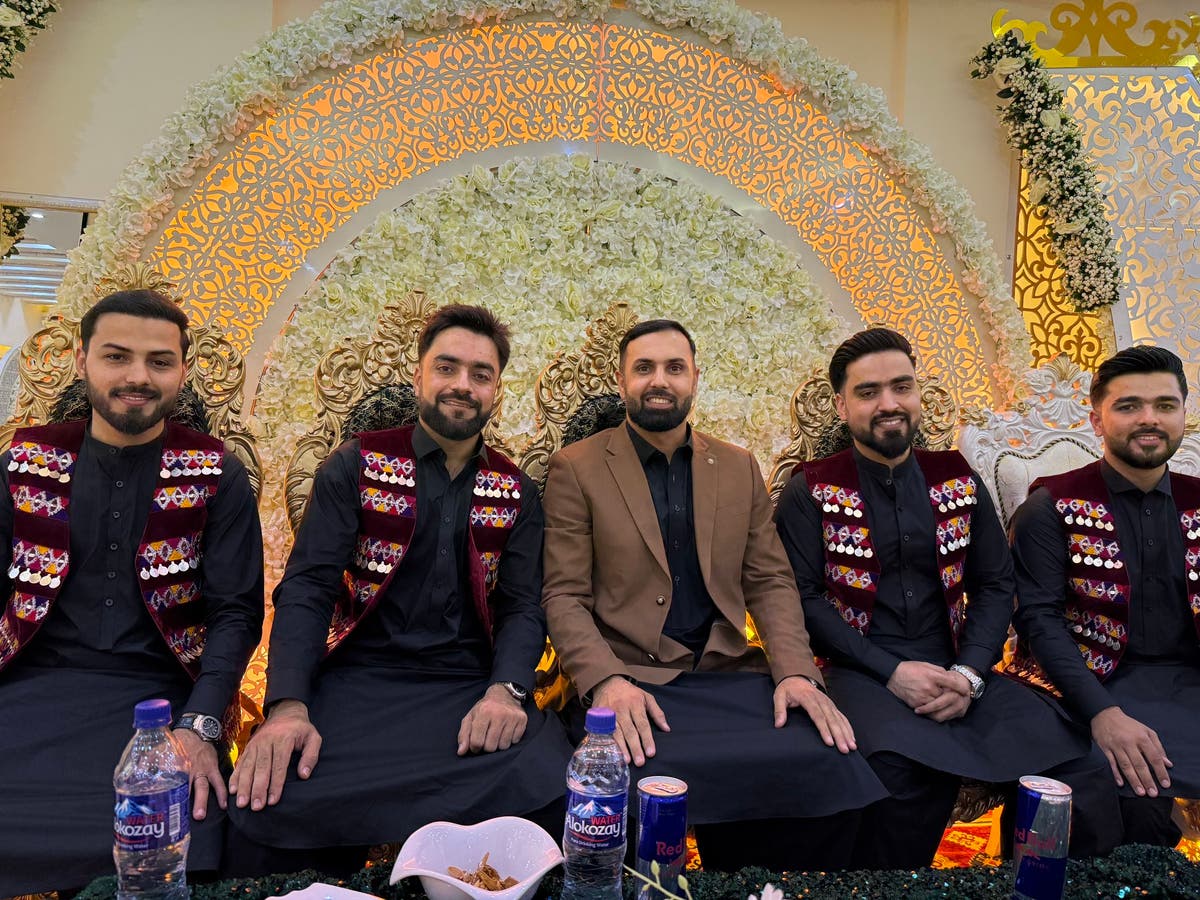Your support helps us to tell the story
Our mission is to deliver unbiased, fact-based reporting that holds power to account and exposes the truth.
Whether $5 or $50, every contribution counts.
Support us to deliver journalism without an agenda.
Afghanistan cricketer Rashid Khan got married in Kabul on Thursday and while congratulatory messages poured in from his colleagues, many are bemused at the complete lack of women in the photos, including the bride.
The Afghan T20I captain and his brothers Amir Khalil, Zakiullah and Raza Khan, were all married on the same day in a traditional Pashtun ceremony in the Afghan capital.
Several people were perplexed by the fact that among the many pictures posted on social media, not one featured Khan’s wife, or any woman.
Afghan cricketer and former captain of the Afghanistan national cricket team Mohammad Nabi posted some photos from the ceremony on X, congratulating Khan: “Congratulations to the one and only King Khan, Rashid Khan, on your wedding! Wishing you a lifetime of love, happiness, and success ahead.”
One fan replied: “Woh sab toh thik hai par dulhaniyaa kahan hai? (All this is fine, but where is the bride?)
Another asked why there couldn’t be a photo of his bride with her face blurred out.
In Afghanistan under Taliban officials, women are virtually excluded from nearly all aspects of public life, with several countries expressing alarm at the systematic erasure of women’s rights.
According to a UN report published in July 2024, the morality police have created a climate of fear and intimidation among Afghans. The report said it documented at least 1,033 instances between August 2021 and March 2024 where ministry employees applied force during the implementation of orders, resulting in the violation of a person’s liberty, and physical and mental integrity.
After the Taliban seized power in August 2021, they have barred women and girls from education beyond sixth grade as well as public spaces, like parks, gymnasiums and salons. They further restricts women from working in a horrific repeat of its 90s rule on the country.
Afghan women must be accompanied by a male guardian, father or husband (mehram) if they step outside the home, or face punishment.
In August, the Taliban introduced the country’s first set of official rules aimed at “preventing vice and promoting virtue,” which require women to cover their bodies and faces fully with thick clothing in public. Under these new regulations, women are not allowed to let their voices be heard in public, even from within their own homes, including by singing or reading aloud. Women are also forbidden from looking directly at men who are not direct members of their family.
Penalties for violating these rules include “advice, warnings of divine punishment, verbal threats, confiscation of property, detention for one hour to three days in public jails, and any other punishment deemed appropriate”.
The Taliban have reacted dismissively to the global widespread criticism and condemnation of their new rules, claiming it displays “arrogance”.
Despite the ban, Afghan women are reportedly defying the Taliban by flooding social media with videos of themselves singing. The lyrics of a popular song say: “Their boots might be on my neck. Or their fists to my face. But with our deep light inside, I will fight through this night.”


